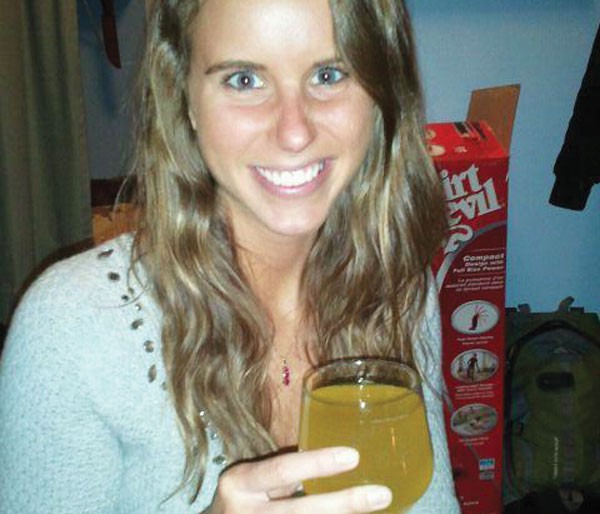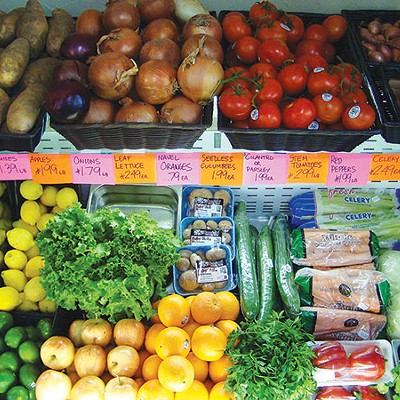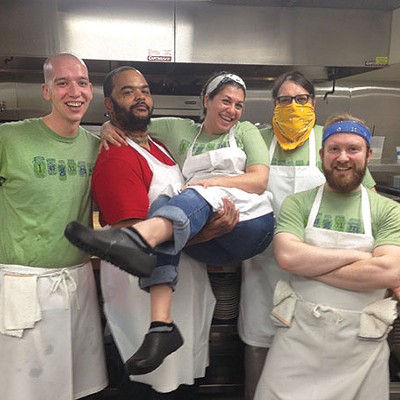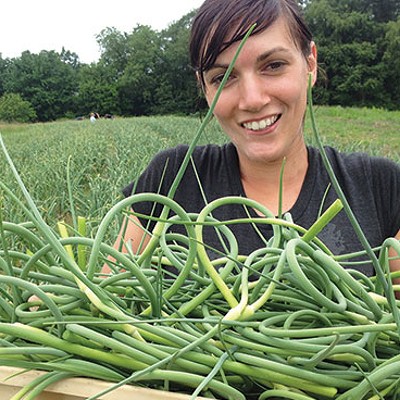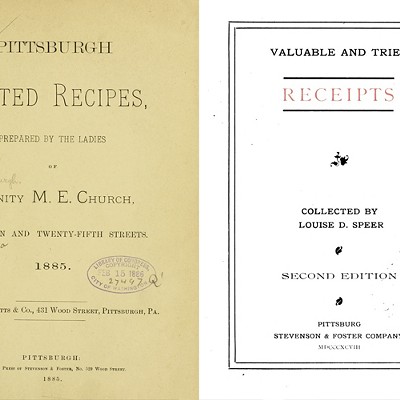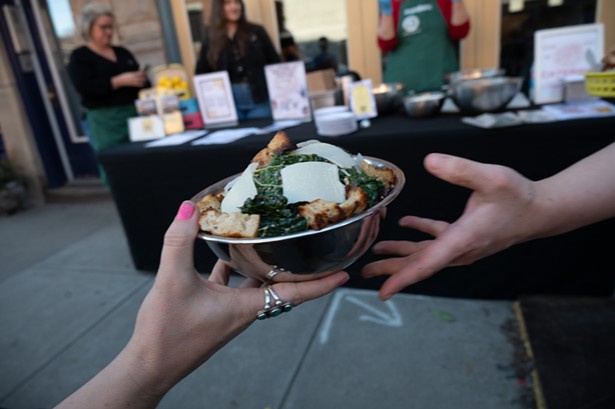Molly McHolme may have the answer to one of parenting's most perplexing questions: How to get your child to eat broccoli? Or kale? Or cabbage? Or carrots?
"I think people would be surprised at how interested kids are in growing food and knowing where it comes from," says the 23-year-old garden educator for urban-agriculture nonprofit Grow Pittsburgh.
As a Keys AmeriCorps member, she has been working at Dilworth Elementary and the Urban League of Greater Pittsburgh Charter School teaching kindergarten and elementary students how to plant and care for gardens, as well as how to cook the food they grow.
"I had a kindergarten boy insist he hated mustard and that he didn't like any vegetables," she says. But she was able to talk him into eating his homegrown salad because he had been the farmer who grew its veggies.
"He ended up being one of the ones with nothing left on his plate," she says.
The Edible Schoolyard program operates in six city schools, including Pittsburgh Colfax, Faison, Montessori and the Environmental Charter School at Frick Park. The seven-year-old program integrates lessons directly into the school day, connecting health and science classes to on-site gardens.
McHolme has been working at it for about three months. "She's a hit at the schools," says Jake Seltman, Grow Pittsburgh's director of educational programming. "All the students yell her name — 'Farmer Molly' — as she enters the school."
McHolme says a senior undergraduate project at Allegheny College changed her own life when it came to food. For three months, she ate only food grown within a 100-mile radius of Meadville, where the school is located.
"I really had to know my farmers," she says, adding that although she saved money — spending less than she would have on a college meal plan — the time and labor involved made it impractical.
Her work now in schools is also providing valuable lessons on food policy and food access, issues she says she often felt helpless to address in an academic setting.
Fresh food, and "dirt and insects are something unusual and frightening" for the kids, she says. "It's been really fascinating and inspiring to engage them in things that push their comfort zone. ... Getting in there and working with kids is exactly what we need to be doing."

